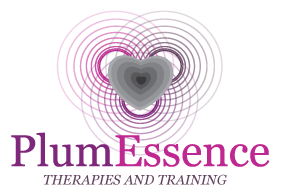 Grief and Loss
Grief and Loss
Of all the trials we face in life, the loss of a loved one may be one of the hardest to endure, much less overcome. During these dark times, the worst within us rises and threatens to overwhelm, but while we are at our worst, we are also at our best.
Our unique strengths appear as we fight to persevere.
Grief is universal, but understanding the particular challenges faced by different personalities, may help us prepare for the inevitable and cope with the irreversible.
Grief, sadness and depression are all emotional states that drain a person’s energy and stated to be one of the biggest causes of stress. Once we get past the anger of losing someone, these feelings follow closely behind and in no particular order, or over a specific time span. During times of grief, we don’t seek pleasure and we don’t enjoy life. Our energy for such matters usually evaporates during mourning. The energy depletion is often intense and we sometimes hear phrases like, “I don’t know how I’m going to go on with my life.”
For some people, the death of a loved one is a death of possibility, future adventures, shared goals and dreams, all gone. The only thing left is fading memories. Grief wounds us all, but for some, the hurt is more visceral than most, and they may find loss hardest to accept.
Some people believe that death can give some relief from a life full of hardship.
Some people realise that they are “very afraid” to die.
Some people are not content with the fact that everyone has to die.
Some people start to think about how short life really is.
Some people start to worry about the possibilities of death-inducing events like future wars.
On the whole, many people love happy endings, but more than that, they love that happiness doesn’t need an ending. Death is final, and it serves as a slap in the face to people’s soft-hearted optimism. This is why some people may struggle more than most at foraging meaning out of the chaos of grief.
Drawing upon Resilience
As terrible as grief is, as heavy as it lies on our shoulders, grief is very rarely in a hurry to leave us. Eradicating that pain would mean people ridding themselves of the person they once loved. They may find themselves revisiting old memories for comfort – but instead drawing up pain.
With their inability to ignore their emotions or to forget their loved one, the question must be asked: How do some people deal with their grief? How do they avoid being consumed by it?
Healthy mourning allows people to pass through their exhausting sadness, to accept their loss and then to arrive at a “new normal”.
For some, they may need more private time than usual to rebuild their reserves following a tragedy, but they should be careful not to turn this into isolation.
Some would do well to remember that although there may be a strange comfort in the company of ghosts, living people must take precedence.
Because of their nature, some people have remarkable resilience and an uncanny ability to adapt to changing circumstances.
Even in the darkest of times, some people find ways to be hopeful that life can be beautiful again, and it’s this hope, no matter how small, they should cling to as they find their way out of grief.
Effective grief counselling is mostly about giving people permission to deal with death in the way that suits them best.
Whatever your personality type, when you face a loss, give yourself permission to do whatever it takes to get through the experience in your own way. And be generous enough to allow others to grieve in their fashion even if it doesn’t feel quite right to you.
Has a loss left you feeling like a shadow of your former self? Or did you find strength, even in your sorrow? Please share your thoughts with me so I can help others in future.
This piece of writing has been adapted from a piece published by The 16Personalities Team at 16personalities.com
PlumEssence Therapies and Training can offer a range of natural therapies to help you cope with, and manage grief, whether that’s a safe space to talk, aromatherapy, reiki, crystal therapy, meditation and mindfulness or NLP and hypnotherapy. No obligation chat’s are always offered to see if we can work together.
Contact tracey@plumessencetherapies.co.uk or call 01889 808388 or 07803399594.
